MercoPress. South Atlantic News Agency
Tag: China
-
Monday, March 21st 2011 - 19:11 UTC
Fearing social unrest, Beijing bans “hedonistic, high-end” lifestyles advertising
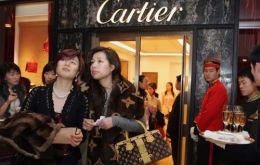
China's capital has banned outdoor advertising that promotes hedonistic or high-end lifestyles as the government seeks to ease public concerns about the country's widening wealth gap.
-
Thursday, March 17th 2011 - 18:04 UTC
China will finance and build 20.000 housing units in Venezuela

Venezuela signed an agreement with Chinese companies Citic Group and Industrial & Commercial Bank of China Ltd. to negotiate a 4 billion US dollars loan to finance oil and construction projects, President Hugo Chavez said in Caracas.
-
Thursday, March 17th 2011 - 15:27 UTC
Brazilian industry creates a Chinese Studies Centre to monitor bilateral trade
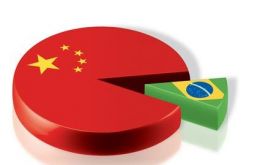
Brazil’s powerful Federation of Industries of Sao Paulo State (Fiesp) is set to create a Chinese Studies Centre in partnership with the federal government, the president of the federation said in Sao Paulo.
-
Tuesday, March 15th 2011 - 05:32 UTC
Corruption and inflation, main challenges to social stability admits China
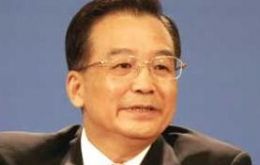
Premier Wen Jiabao said on Monday China would pursue political reforms only in a “gradual” manner and within the umbrella of one-party rule, even as he ruled out the likelihood of the recent West Asian uprisings having any impact on China.
-
Monday, March 14th 2011 - 06:50 UTC
Brazil preparing plan to stimulate industry and cut knick-knack Chinese imports

Brazil imports too many knick-knacks from China complained Brazilian president Dilma Rousseff, who next month makes an official state visit to the Asian giant, according to reports in the Sao Paulo press
-
Monday, March 14th 2011 - 06:45 UTC
China working to become a leading defence-industrial power, says British report
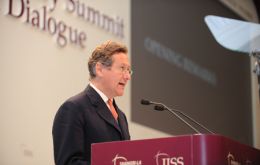
China has set its sights on joining the ranks of the world's leading defence-industrial powers, amid growing concerns in India over Beijing's recent assertiveness and its change in policy towards New Delhi's row with Pakistan over Kashmir, according to a top UK think tank.
-
Thursday, March 10th 2011 - 21:20 UTC
Rare trade deficit in China; conflicting opinions as to the reasons
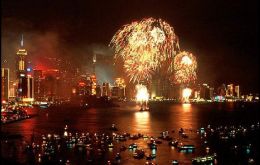
Chinese trade figures released Thursday show a surprising deficit for February, as export growth slowed and import numbers remained strong. Chinese statistics released Thursday show that the country registered a trade deficit in February of 7.3 billion US dollars.
-
Thursday, March 10th 2011 - 20:30 UTC
China rules out multi-party democracy and western style political reforms

A senior Chinese leader says his country will not become a multi-party democracy or adopt other Western-style political reforms. Wu Bangguo - officially number two in the leadership structure - warned that China could face civil disorder if it abandoned its current system.
-
Thursday, March 10th 2011 - 06:34 UTC
China scrambles to secure long-term uranium supplies for 84 nuclear plants
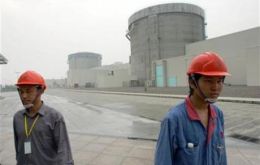
China’s scramble to secure long-term uranium supplies to support the rapid expansion of its nuclear power industry has led the state-owned CGNPC Uranium to make a 1.23 billion US dollars takeover bid for London-listed Kalahari Minerals.
-
Wednesday, March 9th 2011 - 21:07 UTC
China plans to build 10 million low cost homes in 2011

China plans to build 10 million low-cost homes this year at a cost of 200 billion US dollars, a government minister has said. The move comes as soaring home prices spur complaints about affordability.
